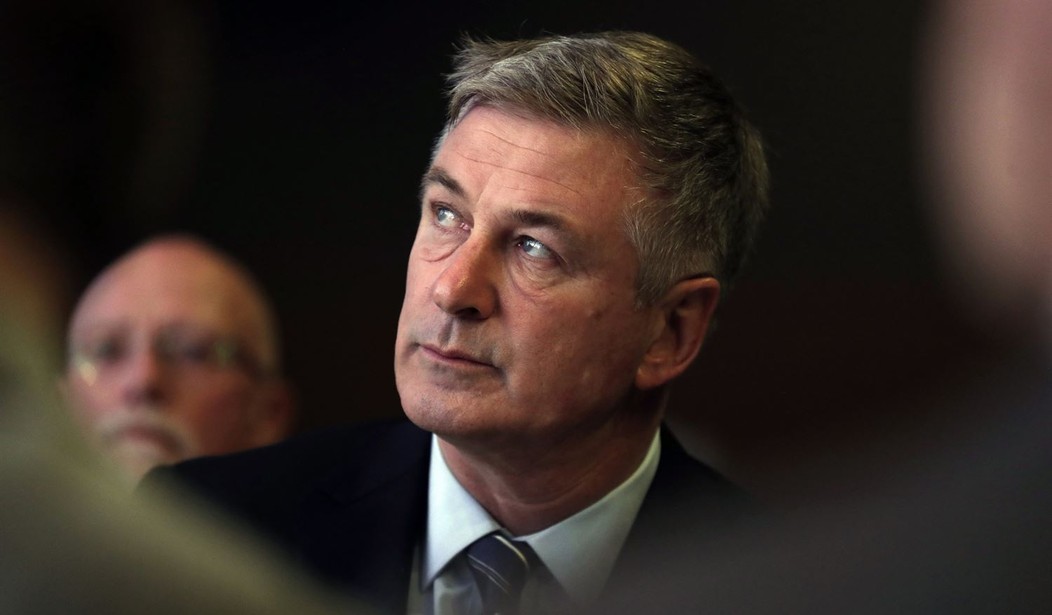During the first day of Alec Baldwin's trial on involuntary manslaughter charges in the shooting death of cinematographer Halyna Hutchins, the prosecution wasted little time in bringing up Baldwin's handling of the revolver that was in his hand when it was discharged. Erlinda Ocampo Johnson argued that Baldwin should have checked the revolver to make sure it wasn't loaded before handling it, but Baldwin's defense attorney claimed during his opening statement that actors like Baldwin have no duty or responsibility to ensure that the firearms they use on set are disabled or unloaded.
In his opening statement, defense attorney Alex Spiro argued that it was not Baldwin's responsibility to check the gun, and that he relied on others - Gutierrez Reed and first assistant director Dave Halls - to make sure the gun was safe.
"The actor's job is to act," he said. "He's Harland Rust. He's an outlaw. In the incident in question, he's pulling a six-shooter to defend himself. His mind is somewhere else: in the being of another, a century away. He's an outlaw protecting himself."
I'm pretty sure that even Wild West outlaws knew not to pull the trigger of a gun unless they were willing to destroy whatever it was pointed at, and to always treat firearms as if they were loaded. Even if they didn't, Baldwin arguably should have known that, especially since prosecutors have previously established that the prop guns used on the set of "Rust" had also been used for some plinking by crew members during the filming.
While there's been a lot of discussion about whether the gun malfunctioned and fired without Baldwin actually pulling the trigger (something the prosecution disputes), Spiro told the jurors it doesn't matter if Baldwin pulled the trigger or not.
"On a movie set, you're allowed to pull the trigger," Spiro said.
The two sides disagreed on what rules actually apply on set. Johnson noted that Safety Bulletin #1 requires treating guns as if they are loaded, and forbids pointing a gun at anyone.
But Spiro pointed out that actors in Westerns routinely point guns at others while filming scenes.
"These cardinal rules, they're not cardinal rules on a movie set… People point guns on movie sets," Spiro said. "For acting to work, you have to be so close to the barrier of real and imagined that the viewer feels that it's real."
Spiro also argued that the investigators had failed to figure out the source of the live bullet. So at a certain point, he argued, they turned their attention to proving that Baldwin fired the gun.
"They weren't really investigating anymore," Spiro said. "They were trying to disprove Alec, to get Alec, to have this day."
Spiro's argument would be stronger were it not for the fact that Baldwin wasn't the only cast or crew member to face criminal charges in Hutchins' death. Assistant director David Hall pleaded guilty to a charge of unsafe handling of a firearm, while armorer Hannah Gutierrez-Reed was convicted of involuntary manslaughter and sentenced to 18 months in prison for allegedly loading the live round into the revolver.
Spiro's defense, at least during the opening statements, is essentially that Baldwin, as an actor, bears no responsibility for his own actions. But prosecutors will be reminding jurors that Baldwin may have had to handle the firearm during the scene that was being filmed when Hutchins was shot, but he didn't need to have his finger on the trigger.
One of the key witnesses at the trial will be Joel Souza, the film's director, who was wounded in the shoulder. In her opening statement, Johnson said that Souza would testify that Baldwin often went off-script.
"You will hear the director tell you, many times the defendant did his own thing," Johnson said.
She argued that in the fatal incident, Baldwin was supposed to draw his gun from the holster, but was not supposed to fire. She said that witnesses saw him repeatedly put his finger on the trigger, in violation of the rules, and that he would sometimes cock the gun for no reason.
"The evidence will show that like in many workplaces, there are people who act in a reckless manner and place other individuals in danger and act without due regard for the safety of others," she said. "That, you will hear, was the defendant, Alexander Baldwin."
Was Baldwin alone responsible for Hutchins' death and the injury to Souza? Absolutely not. But if the crew members who were in charge of overseeing the firearms have been convicted or taken a plea deal, it's hard to see why Baldwin should get a pass for his own behavior on the set... including ignoring the basic rules of gun safety.








Join the conversation as a VIP Member